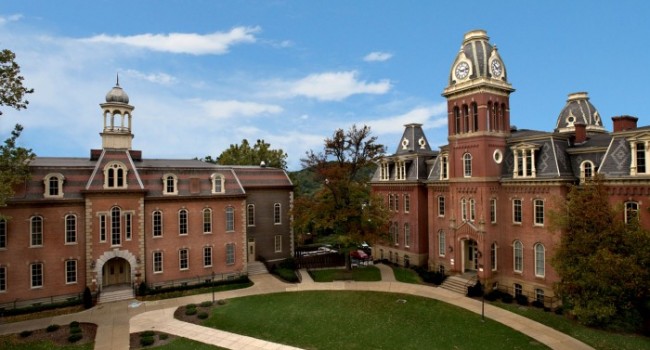Students, faculty learn how to make campus inclusive
By Gabriella Brown
Newsroom@DominionPost.com
The WVU LGBTQ+ Center launched anti-racist and gender-inclusive safe zone training to promote understanding of race, color, sex, sexual orientation and gender identity.
Ellen Rodrigues, WVU LGBTQ+ Center interim director, said the training is centered around informing students and faculty about how they can change their language to be a more inclusive campus.
“WVU is a predominantly white institution, so programs like this definitely increase visibility of the community and increase opportunities for people to meet and interact,” Rodrigues said.
The student-led safe zone training was created with the goal of fostering diversity and inclusive culture in higher education. During the one-hour training sessions, which can be conducted virtually, participants will learn about topics such as the history of racism and systematic discrimination, complexity of identity and how to intervene in bias, harassment and discrimination.
One of the safe zone- training goals is to not only build an understanding of the challenges each group faces, but also to discuss how race, ethnicity, sexual orientation and gender identity can intersect. Rodrigues said she hopes participants will implement and pass on the knowledge they gain in these conversations to their peers.
Rodrigues said now is the perfect time to present and launch this program, given the national conversations created through the Black Lives Matter movement. Coinciding with the movement, the program will help continue spreading awareness and amplifying the voices of students among several populations, including those who are LGBTQ+, Black, LatinX, Native American, Asian, Pacific Islander, Middle Eastern and North-African.
Sessions will officially begin for faculty in November and for students in Spring 2021 semester. By July 2021, the program expects to have reached at least 1,000 participants.
Through an $85,000 grant created by the West Virginia Higher Education Policy Commission and Community and Technical College System and distributed to multiple institutions, WVU received $5,000 to fund the safe-zone training program. This funding will go to support each student leader for professional academic development opportunities related to this project or the student’s major and area of interest.
Andrew Schneider, executive director for Fairness West Virginia, said programs like safe-zone training provide valuable knowledge to participants. He said because Fairness WV has presented safe-zone training of its own throughout the state, they have already seen the positive impacts the training can make.
“College is an important time in a young person’s life,” Schneider said. “For many LGBTQ people, college might be the first time they are able to truly live as who they are without hiding from parents or other family members.”
According to data from the UCLA Williams Institute, nationally, members of the LGBTQ+ community are less likely to earn a bachelor’s or post-graduate degree. Schnieder said while it is unknown what exactly causes this, programs like safe-zone training can help change that.
He said many transgender and LGBTQ+ students also still face discrimination and harassment on college campuses. This often leads to them not completing their degrees, as they are unable to achieve their full academic potential.
Not only do the challenges of the LGBTQ+ community cause them to leave college campuses, Schneider said it has also caused many to leave the state. As the population of West Virginia continues to decline, Schnedier said it is vital that all residents feel safe and at home within the state.
“We have to build ourselves up to an inclusive and welcoming state,” Schneider said. “As a result, our economy and life here in our state will flourish.”
Tweet @DominionPostWV




